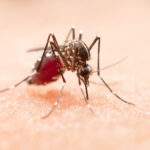
Nosebleeds, medically known as epistaxis, are common, affecting around 60 percent of people at some point in their lives. They occur when a cold, virus, or other irritants cause the blood vessels in the nose to become irritated. While often a nuisance, they are rarely cause for concern. However, frequent, recurring nosebleeds can indicate an underlying condition.
There’s no consensus on what constitutes frequent or severe nosebleeds. If you or your child experience nosebleeds often, it’s important to consult a healthcare provider to rule out any serious conditions.
Types of Nosebleeds
Nosebleeds are categorized into two main types:
- Anterior Nosebleeds: These are the most common, accounting for about 90% of cases. They originate from blood vessels near the front of the nose and typically occur in one nostril.
- Posterior Nosebleeds: Less common and more serious, these start in the back of the nasal cavity near the throat, potentially leading to significant blood loss.
Causes of Frequent Nosebleeds
Nosebleeds occur when blood vessels in the nose rupture. Multiple factors can contribute to this, including medical conditions, medications, and environmental factors.
Physical Trauma
Physical trauma to the nose can cause or increase the risk of nosebleeds. Common causes include:
- Picking the nose
- Facial injuries
- Deviated septum
- Prolonged use of nasal cannulas
- Snorting illicit drugs
Environmental Factors
Dry air and cold weather can dry out and irritate the nasal passages, leading to nosebleeds. Seasonal allergies and colds can also cause inflammation and irritation, increasing the likelihood of nosebleeds. Those living in cold, dry climates or experiencing seasonal allergies may have more frequent nosebleeds.
Medical Conditions
Certain health conditions, especially those affecting blood flow, can increase the likelihood of nosebleeds. These conditions include:
- Hypertension (high blood pressure)
- Blood disorders like hemophilia
- Alcoholism
In rare cases, frequent nosebleeds can signal more serious conditions such as bleeding disorders, tumors, or cancers, often accompanied by symptoms like bruising, fatigue, and other health changes. Consult a healthcare provider if nosebleeds are accompanied by these symptoms.
Medications
Certain medications can trigger or prolong nosebleeds, including:
- Blood thinners
- NSAIDs (e.g., ibuprofen, aspirin)
- Platelet aggregation inhibitors
- Nasal steroid sprays
Who Is More Likely to Get Frequent Nosebleeds?
Nosebleeds are more common among children (ages 2-10) and seniors (ages 50-80). Individuals with blood-related medical conditions or those taking specific medications are at higher risk. Living in a dry climate also increases the likelihood of frequent nosebleeds.
Treatments for Frequent Nosebleeds

To stop a nosebleed:
- Apply direct pressure to the nose and lean forward for 10-15 minutes.
If this method is ineffective, healthcare professionals may use:
- Silver Nitrate: To cauterize the bleeding area.
- Nasal Packing: Using gauze or nasal tampons to stop the bleeding.
- Surgery: In rare cases, to address recurring nosebleeds.
If frequent nosebleeds persist, your healthcare provider may advise discontinuing nasal steroid sprays or other irritants.
Preventing Nosebleeds
Preventive measures include:
- Using a humidifier to keep nasal passages moist.
- Applying saltwater nasal sprays or gels.
- Avoiding nose picking.
When to See a Healthcare Provider
Seek medical attention if:
- Bleeding persists after 20 minutes.
- You experience fatigue, lightheadedness, disorientation, chest pain, or bruising.
- Bleeding occurs post-surgery or due to head/nose injury.
- You are on blood-thinning medication and cannot stop a nosebleed.
For frequent nosebleeds, consult a healthcare provider to determine the cause and appropriate treatment. They can perform tests to rule out serious conditions and offer advice on prevention and management











